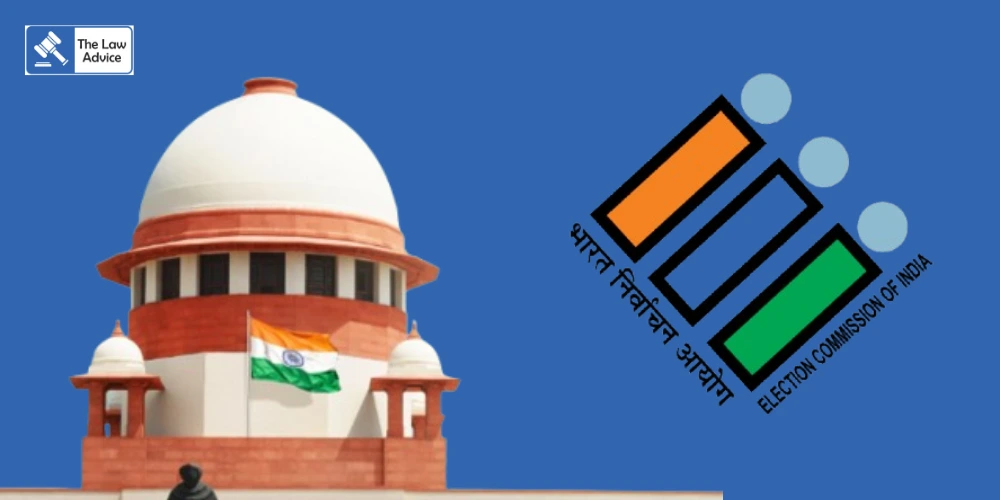The Supreme Court of India has taken up a significant legal issue whether voters can be denied the right to choose “None of the Above” (NOTA) in elections where only one candidate is contesting.
During a recent hearing, the bench led by Justice Surya Kant, along with Justices Ujjal Bhuyan and N. Kotiswar Singh, posed sharp queries to the Election Commission of India (ECI) about the constitutionality of Section 53(2) of the Representation of People Act, 1951, which allows an unopposed candidate to be declared elected without any voting taking place.
The Court was considering a Public Interest Litigation (PIL) filed by the Vidhi Centre for Legal Policy, challenging the legality of denying voters a say in uncontested elections. The key argument is that even when there is only one candidate, citizens should have the opportunity to register their dissent through NOTA, a right recognized by the Supreme Court in its landmark 2013 ruling.
Justice Surya Kant pointedly asked:
“Should the majority will of voters be ignored just because there’s only one candidate? If many voters would rather select NOTA than support the lone candidate, shouldn’t that expression be protected?”
The bench emphasized the principle of electoral dissent, noting that democracy is not only about electing representatives, but also about rejecting options that do not represent the voters’ will.
The ECI and Union Government downplayed the issue, calling it hypothetical, since unopposed elections are rare. However, the bench was not convinced, maintaining that the constitutional question deserves full examination, regardless of how often such situations arise.
The judges indicated that if a significant number of voters are against the only candidate available, the lack of a voting process effectively silences their voice — a serious concern in a participatory democracy.
Why This Matters
• This case could redefine how unopposed elections are handled in India.
• If the Court finds merit in the plea, it could lead to mandatory polling even in single-candidate elections, or a requirement that the candidate must secure a minimum number of votes.
• It also reinforces the importance of NOTA as a tool of dissent, ensuring that voter choice is respected even when options are limited.
• Case Title: Vidhi Centre for Legal Policy vs. Union of India & Election Commission of India
